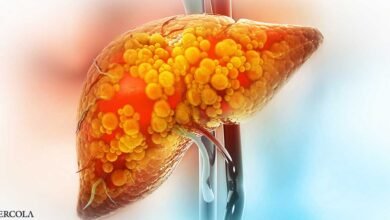Breaking — World-Renowned Vaccinologist Publishes Paper Admitting Lack of Vaccine Safety Studies

In a stunning reversal, Dr. Stanley Plotkin, widely regarded as the godfather of modern vaccinology, has co-authored a paper in the New England Journal of Medicine1 (NEJM) acknowledging significant gaps in vaccine safety research and calling for increased funding to address these shortcomings.
This admission comes after decades of the medical establishment insisting that vaccines are among the most thoroughly studied and safest medical interventions. In the paper, titled “Funding Postauthorization Vaccine-Safety Science,”2 they make a series of revelations that validate concerns long raised by vaccine safety advocates. In a commentary, Aaron Siri, managing partner of New York law firm Siri & Glimstad, writes:3
“Wow. After decades of Dr. Stanley Plotkin and his vaccinologist disciples insisting vaccines are the most well studied products on the planet, they just penned an article admitting precisely the opposite.
They just admitted vaccines are not properly studied — neither prelicensure nor post-licensure. They admitted, for example, ‘prelicensure clinical trials have limited sample sizes [and] follow-up durations’ and that ‘there are not resources earmarked for postauthorization safety studies.'”
Key Admissions Shine Light on Lack of Vaccine Safety Studies
One of the most striking admissions in the paper is the acknowledgment that prelicensure clinical trials for vaccines are inadequate for assessing safety. The authors state:4
“Postauthorization studies are needed to fully characterize the safety profile of a new vaccine, since prelicensure clinical trials have limited sample sizes, follow-up durations, and population heterogeneity. It is critical to examine adverse events following immunization (AEFIs) that have not been detected in clinical trials, to ascertain whether they are causally or coincidentally related to vaccination.”
This contradicts previous claims by vaccine proponents that clinical trials provide robust evidence of safety prior to approval. The admission that these trials have limited follow-up periods is particularly notable, as critics have long argued that potential long-term effects of vaccines are not adequately studied before they are approved and recommended for widespread use.
“Let me translate,” Siri writes, “the clinical trials relied upon to license childhood vaccines are useless with regard to safety since they virtually never have a placebo control, typically review safety for days or weeks after injection, and often have far too few participants to measure anything of value.”5
The NEJM paper goes on to reveal that there is currently no dedicated funding stream for post-approval vaccine safety studies in the U.S. The authors write: “Although the ACIP [Advisory Committee on Immunization Practices] acknowledges the need, there are currently no resources earmarked for postauthorization safety studies beyond annual appropriations, which must be approved by Congress each year.”6
This lack of consistent, dedicated funding is one reason why many important safety questions remain unanswered years or even decades after vaccines have been introduced. The authors admit that “Progress in vaccine-safety science has understandably been slow,” citing delayed epidemiological evidence and incomplete understanding of biological mechanisms as key factors.7 But as Siri notes:8
“Shameless to pretend you have not for decades ignored or attacked those calling for these studies while pretending a mountain of such studies showing the foregoing don’t already exist … [and] shameless to pretend parent groups have not been yelling about this [funding] issue for decades only to be ignored and attacked.”
‘Not Enough Evidence’ to Determine if 76% of Vaccine-Related Health Outcomes Are Linked to Shots
In a particularly revealing passage, the paper states, “In 234 reviews of various vaccines and health outcomes conducted from 1991 to 2012, the IOM found inadequate evidence to prove or disprove causation in 179 (76%) of the relationships it explored, illustrating the need for more rigorous science.”9
This statistic is astounding — for over three-quarters of vaccine-related health outcomes examined by the Institute of Medicine (now the National Academy of Medicine), there was not enough evidence to determine whether vaccines were causally linked or not. This flies in the face of repeated assurances that vaccine safety is settled science.
The paper also notes that even for known adverse reactions to vaccines, the biological mechanisms are not understood. This includes serious conditions like Guillain-Barré syndrome associated with influenza vaccines and myocarditis linked to mRNA COVID-19 shots.
Experts have long been calling for unbiased research in understanding the impact of vaccinations on children’s health, but the reality is that public health agencies and vaccine proponents have not been interested in learning the truth. Siri writes:10
“If they are really interested in the truth about what injuries vaccines cause and the rate at which these injuries occur, then they should welcome convening a bipartisan panel which could first review all the very concerning studies and hard data that already exists on this topic (often by scientists not on pharma’s dole) and we could design additional studies together and have them run in the open so everybody has to live with the result.
… Plotkin and company should welcome studies which can show vaccines have not contributed to the rise in chronic childhood disease (many of which are immune mediated diseases) from 12% of children in the early 1980s (when CDC recommended 7 routine childhood injections) to over 50% of children now (when CDC recommends over 90 routine childhood injections).
And I think they do welcome such studies if they can assure that the outcome would show vaccines do not cause these harms. Alas, the reality is that (as they know) studies showing vaccines contribute to this rise already exist. But their goal, in any event, is not to really study safety. Rather it is to prove their prior assumption that vaccines are safe and harms are ‘rare.'”
Plotkin and his co-authors, while acknowledging significant gaps in vaccine safety science, propose increased funding by tapping into the Vaccine Injury Compensation Program (VICP) trust fund. They note that this fund, generated by an excise tax on vaccines, has a surplus of $4.3 billion as of April 2023.11
However, it’s important to note the authors’ stated motivations for proposing these changes. They express concern about “widespread vaccine hesitancy” and argue that slow progress in vaccine safety science has “adversely affected vaccine acceptance.” In other words, their primary goal is increasing public confidence in vaccines — not critically examining safety issues with an open mind.
Failure to Admit Decades of Lies, Gaslighting and Fraud
Siri notes that the admissions in the NEJM paper directly contradict decades of assurances from the medical establishment. He writes:12
“For decades, the medical community insisted vaccines are the most thoroughly studied product ever; for example, Dr. Paul Offit said, ‘I think we should be proud of vaccines as arguably the safest, best tested things we put in our body.'”
But, Siri argues, parents of vaccine-injured children and others who raised concerns about inadequate safety studies were “shunned and attacked by the medical community and health agencies” for years. The paper is a belated acknowledgment of what these advocates have been saying all along, albeit with dubious motives behind it:13
“Plotkin and his disciples realize they can’t cast voodoo on the public. They can’t hide the truth. So, their only option is to try and co-op the truth they have lied about for decades by now admitting that the studies to show vaccines are safe do not exist.
But in making that admission, they conveniently fail to admit that for decades they lied, gaslit, defrauded (and I don’t use that word lightly) the public by claiming that vaccines are probably the most thoroughly safety tested products on the planet and that people should rest assured, no stone on vaccine safety was left unturned.
… Their real agenda is plain, and it is not to study vaccine safety, but rather to confirm that which they already believe. This is crystal clear from the fact that, while their article admits the studies have not been done, they write in the same breath that serious vaccine harms are ‘rare.’ But if the studies have not been done, how do they know that?”
Siri also points out that the authors ignore existing studies that have found evidence of harm from vaccines or their components.14 He argues that truly unbiased research would need to consider this body of evidence rather than starting from the assumption that serious adverse events are rare.
Study Shows Vaccinated Children Have Higher Rates of Disease
A study conducted by Dr. Paul Thomas and James Lyons-Weiler examined health outcomes in vaccinated and unvaccinated children over a 10-year period within a pediatric practice. Dr. Thomas had his medical license suspended due to his advocacy of informed consent for vaccinations.
The research, published in the International Journal of Environmental Research and Public Health,15 found that vaccinated children had higher rates of various health issues compared to unvaccinated children. These included:
|
Asthma |
Allergies |
|
Eczema |
Sinusitis |
|
Gastroenteritis |
Respiratory infections |
|
Middle ear infection |
Conjunctivitis |
|
Breathing issues |
Behavioral issues |
Notably, ADHD was observed in a small percentage of vaccinated children but not in any unvaccinated children. The study also reported lower rates of autism spectrum disorder and ADHD in the practice compared to national averages. The authors suggested that unvaccinated children in the practice were at least as healthy as, if not healthier than, their vaccinated counterparts.16
The researchers also emphasized the need for more independent studies on this topic, free from potential conflicts of interest with the vaccine industry, to better understand the relationship between vaccination and children’s health outcomes.
Proposed Solutions Raise Questions About True Motives
For years, those expressing concerns about vaccine safety have been dismissed as “anti-science” or accused of endangering public health. The NEJM paper demonstrates that their core critiques — including regarding inadequate safety studies — were well-founded.
The publication of this paper marks a significant shift in the public discourse around vaccine safety. By admitting to major gaps in safety studies and the slow progress of vaccine safety science, Plotkin and his co-authors have validated concerns that were previously dismissed by much of the medical establishment.
However, the proposed solutions and the authors’ stated motivations raise significant questions about whether this represents a genuine shift toward more critical examination of vaccine safety or merely an attempt to boost failing public confidence. Siri continues:17
“After making the a priori conclusion that harms are ‘rare,’ ignoring all the existing studies showing harm, these folk have the audacity to want to raid the federal vaccine injury compensation fund to presumably pay themselves and their compatriots hundreds of millions of dollars to conduct the studies that would, no doubt, seek to confirm their prior conclusion that vaccine harms are ‘rare,’ while ignoring the studies that already show serious harm.”
What is clear is that the oft-repeated claim that vaccines are “the most thoroughly studied medical intervention” can no longer be credibly made. As this paper demonstrates, there is still much to learn about vaccine safety, and acknowledging this fact is an important step toward informed consent and transparent vaccination policies.
Source link



